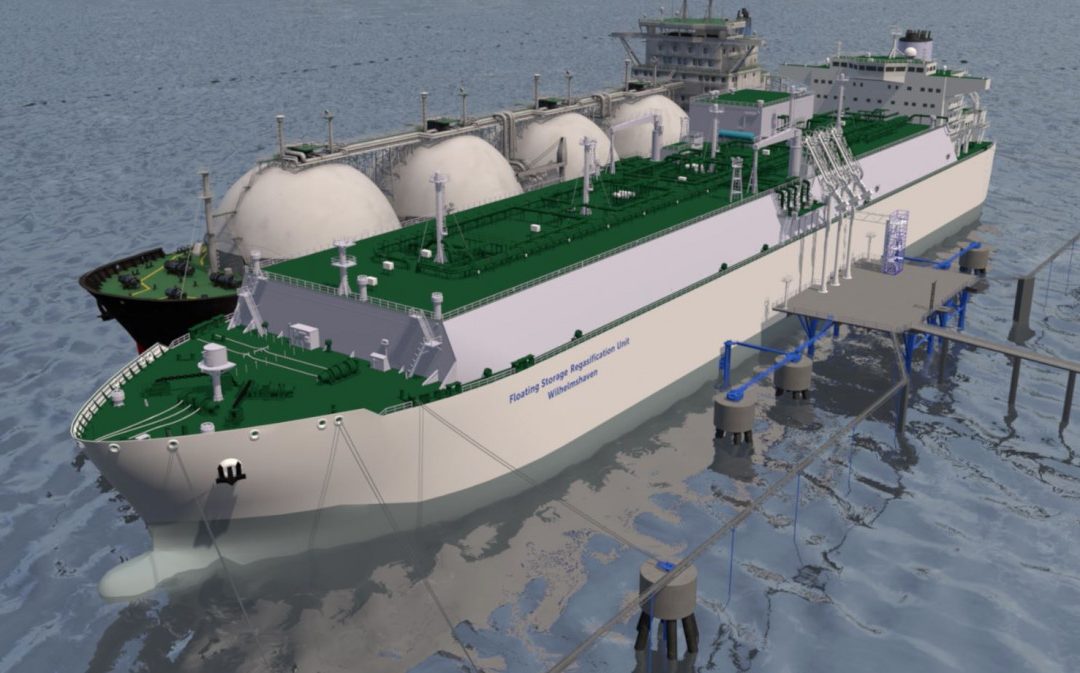Belgian hydrogen company Tree Energy Solutions (TES) announces an open season to fast-track LNG imports into Europe through its Wilhelmshaven Green Energy Hub.
Starting on 25 April 2022, the open season is accessible to all parties seeking to import LNG in the drive to reduce the EU and Germany’s energy dependence on Russia.
With green hydrogen at its core, the Wilhelmshaven green gas terminal is carbon-neutral and transitional. This is a green energy hub, accommodating LNG as an intermediate source of energy supply given the current energy crisis.
TES is planning for the initial capacity to import up to 16-20 billion cubic meters (bcm) per year from 2025 onwards. The terminal will be connected through the new OGE pipeline with the European high-pressure gas grid. Terminal and pipeline capacity may be further expanded through the integration of further LNG tanks and commissioning of a second export pipeline.
The expansion’s timing and size will be determined by market demand for LNG imports from 2025 onwards, as well as the planned transition to green and clean, hydrogen-based gas.
To help decarbonise Germany, from 2027/8 onwards, the Wilhelmshaven terminal will, as part of the Wilhelmshaven Green Energy Hub, increasingly serve for imports of fossil-free green gas. For this, TES will be able to use the new and existing gas infrastructure, without further investments.
The open season will cover three phases:
- Non-binding application expression of interest;
- Binding application window;
- Closing of binding window.
The Wilhelmshaven terminal will ultimately comprise six ship berths, 1,600,000 cubic metres of onshore storage capacity using eight onsite tanks. Of these, four will be available during the initial stage.
The terminal will offer direct access to an extensive gas pipeline network, including existing salt caverns at Etzel and proximity to the Groningen gas grid infrastructure.
TES will further construct carbon export facilities as the Green Energy Hub will also be connected to OGE’s CO2 transportation network. Moreover, TES will also produce green hydrogen at Wilhelmshaven that will be transported through connections with the H2Ercules project that develops Germany’s ‘hydrogen backbone’.
“The TES-Wilhelmshaven project is unique in accelerating Germany’s and Europe’s plans to decarbonise the energy market at scale whilst creating the opportunity to shift away from Russian gas imports as the way out of the current energy crisis,” Otto Waterlander,CCO at TES, said. “The open season makes it possible to materially meet the needs of the market and will help provide energy security for Germany and the rest of Europe by accelerating the growth of green gas imports.”
Source: Offshore Energy






